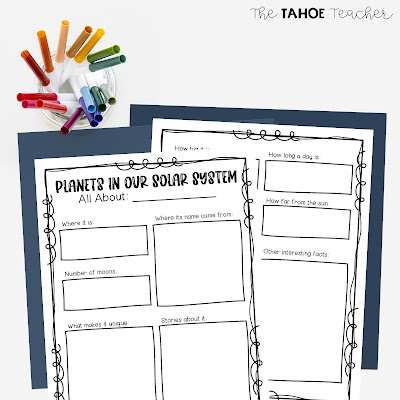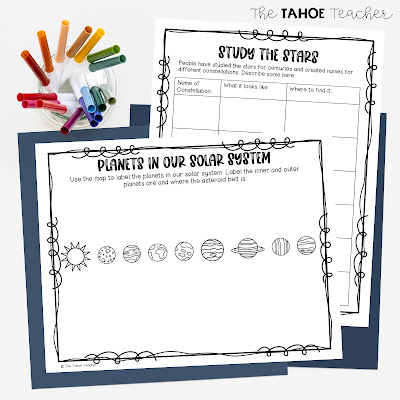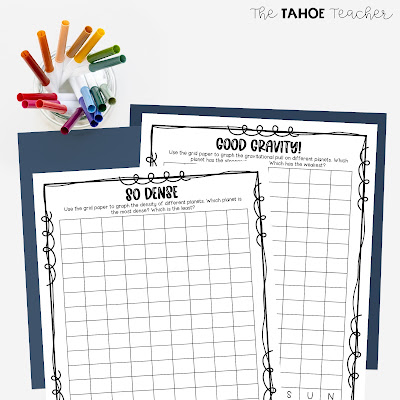Exploring the Solar System through Inquiry-Based Learning
Hey, y'all! Do your students ask "why" as much as mine do? I swear that's all I hear. Why is the sky blue? Why do we have to ____? Why is your hair turning gray? So many questions! But I love them dearly, so I don't want to just answer their questions for them. I want to show them how to find the answers themselves. This solar system inquiry-based learning unit seeks to answer so many of the questions they've asked me over the last few weeks in a student-centered way.
We always start off our new units with my students' favorite activity: asking questions! We do a little QFT session to guide our learning and narrow down our focus questions. From there, we can decide where we will focus our learning and how we want to break it up.
When studying the planets, you could break students into groups or teams to study one and share their findings with the rest of the class, or you could have the class explore all of them together. It's up to you and your time constraints. You could learn about one planet a day or give the kids 3-4 days to explore them all. Your choice.
Now, I teach in a rural community in Nevada. Places like Houston and Cape Canaveral feel like millions of miles away for my students. But I want them to know that jobs in astronomy and other sciences are within their reach if they want them to be. So, while we're learning about the planets and other objects that orbit the sun, we'll also be exploring the jobs that are involved with learning about these things.
There are so many more options than being an astronaut. NASA has a huge team on the ground researching and exploring and all of our students could be part of their team if they wanted to. I really do hope my students learn from this unit that the sky (and outer space) really is the limit!
In addition to all our "why" questions, I frequently hear "how." How do we know this? How did they find that out? How can I do that? So we'll also be researching the people that have made discoveries about the planets and the solar system so far.
We'll be exploring Galileo, Copernicus, Hubble, Kepler, and more. We'll be looking at their discoveries, what caused them, and what that means for us know. I suspect several more questions will arise after that! We'll also learn about famous astronauts like Armstrong (no relation), Aldrin, and Ride, as well as others. 'Cause once that can of worms is open, there's no telling what we'll uncover!
As a kid myself, I was always fascinated to learn about the order of the planets, how far away they are form each other and the earth, and how gravity and temperature change from planet to planet. We'll be learning about how the gravities and the densities of each planet affect our weight (minds will be blown). And how not every planet orbits in a circle, or has a 24 hour day, or a 365.25 day orbit. It's insanity! And it sparks so many more questions in our young scientists' minds. #teachergoals
All this learning can't possibly be assessed with a simple pencil and paper assessment, but if your admin needs it or you want a quick check for understanding, there are reflection pages included. Personally, I prefer a nice project--digital slides, an infographic or booklet, a poster presentation--but that's just me. I feel like it does the learning more justice.
You can find out more about this solar system inquiry-based learning unit in my TPT store here. While you're there, be sure to follow me for all the latest and greatest coming soon!
I hope you found some new ideas for your classroom. Thanks for stopping by and have a wonderful week. I'll talk to you soon.
Stay cozy,











No comments
Post a Comment